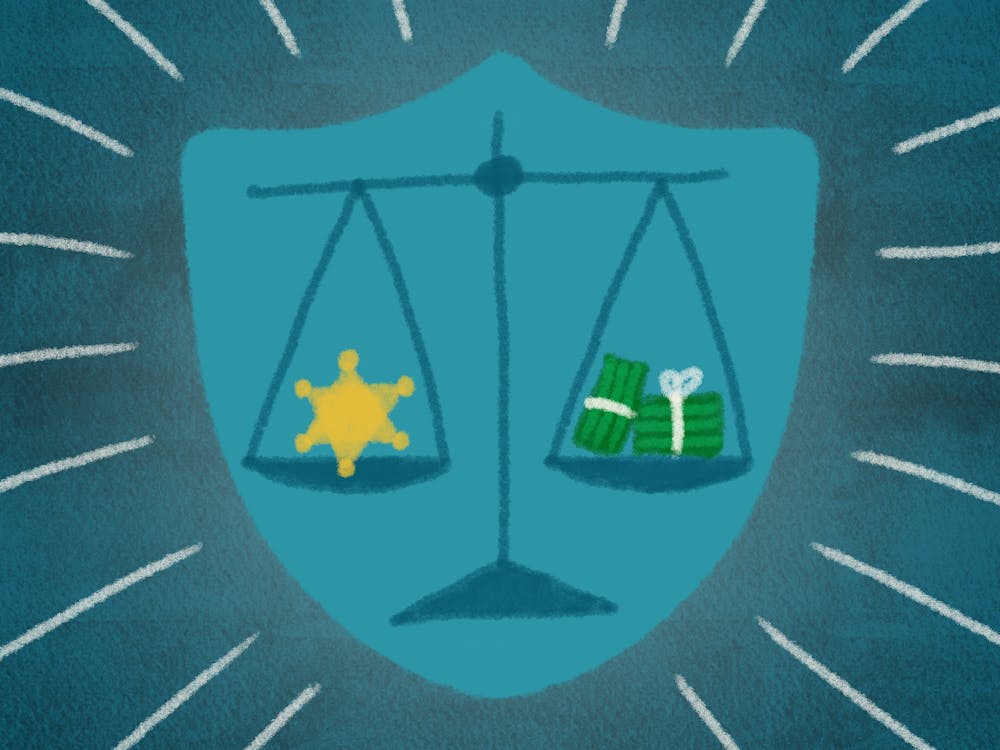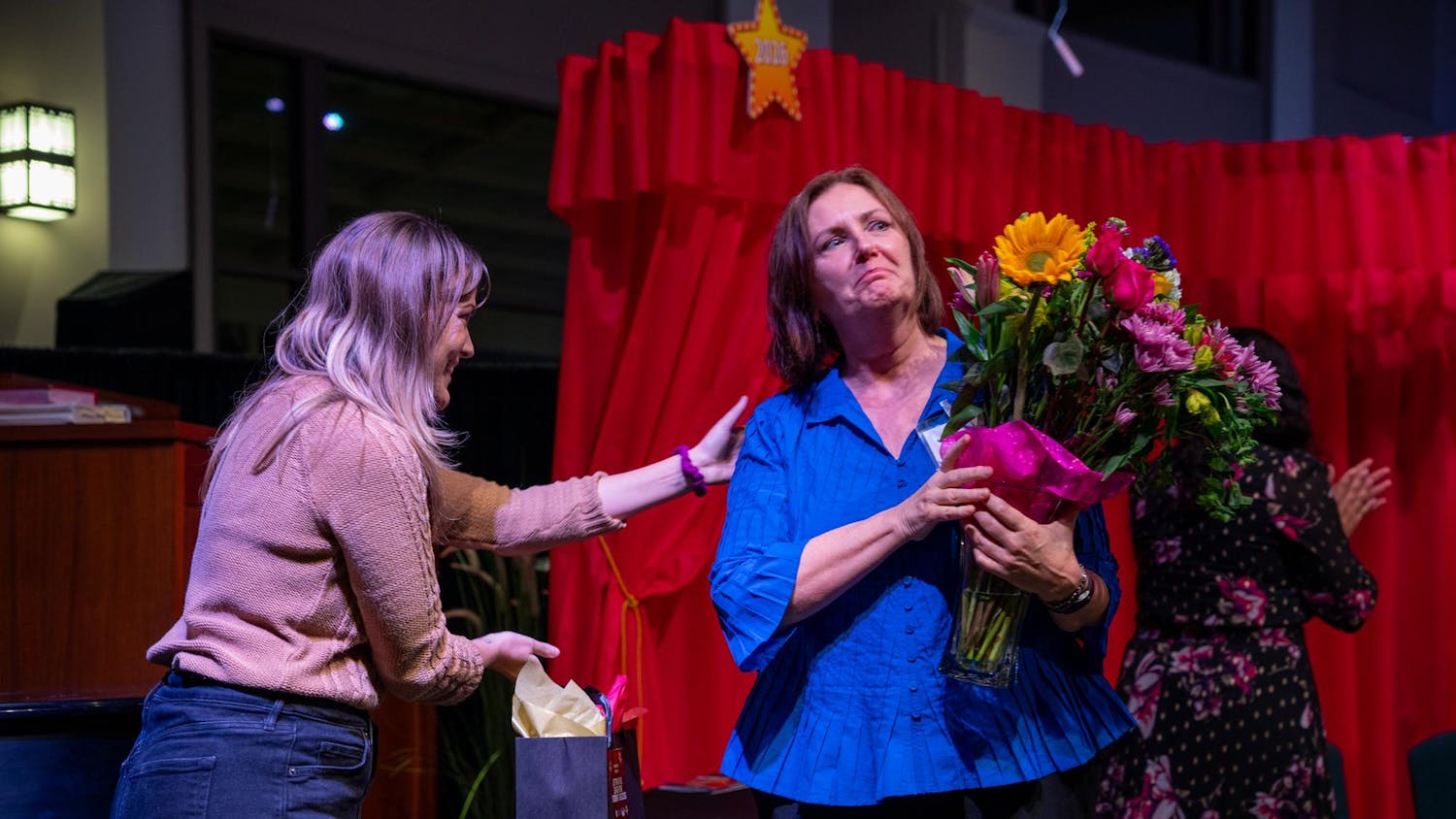The University of Florida Police Department wants a raise, but UF isn’t ready to meet its demands.
UF and UFPD came to an impasse after negotiating for eight hours July 7. The Florida Police Benevolent Association represents UFPD, negotiating on the department’s behalf to raise officers’ base salaries.
However, the PBA and UF couldn’t agree on a final number.
George Corwine, the PBA’s negotiator, gave a final offer to increase UFPD officers’ base salary by $15,000 from the current $50,000.
Patrick Keegan, UF's chief labor negotiator, presented the university’s best offer of an $11,000 raise, but the parties couldn’t settle on a final salary.
Scott Bonafide, the president of North Central Florida PBA, said UFPD officers are paid the least out of Florida’s public university police departments. He’s disappointed UF is reluctant to increase officers’ starting salaries, he added.
“They’ve been in dire need of this raise for a while,” Bonafide said.
UFPD salaries haven’t been raised since 2023, he said, and it was by 3%, a contributing factor to the position’s vacancies.
The average starting pay for university police departments is $61,000, he said.
The Alachua County Sheriff’s Office starting salary is $55,000, and the Gainesville Police Department’s starting salary for certified police officers is $60,000.
A raise would help fill job vacancies and improve the department’s retention, Bonafide said. Only 69 of UFPD’s 89 positions are currently filled, he added.
“You're 20 officers down to protect almost 62,000 students at your university,” he said. “ By getting a starting pay up, it's going to be more of a recruitment tool to bring good, qualified officers in to fill those vacancies.”
The department’s understaffing is a safety concern, especially if a critical incident happens. Having more officers is critical to responding to emergencies, he said.
Gainesville was named the most dangerous college city in a study released by Wasatch Defense Lawyers. The study’s ranks were based on the number of crimes per 10,000 people between May 2023 and 2025. Gainesville had a crime rate of 179 per 10,000 people.
The PBA sent a letter to UF proposing an increase in the department’s base salary by $15,000 on March 27, but UF didn’t respond until June 24, Bonafide said.
UFPD and the PBA’s collective bargaining agreement ended June 30. Every article in the contract is open for negotiations when it expires, Bonafide said, but the impasse only stems from UF and PBA’s failure to reach an agreement on the officers’ salaries.
He said both parties will go through the impasse, which includes a special magistrate. The Public Employees Relations Commission has been informed of the impasse.
George Corwine, the PBA negotiator at the July 7 meeting, said it’s “disheartening” that UF can't find $1.1 million to fund the police department but can approve $3 million for a president.
In an email statement, UF wrote its staff will diligently continue all efforts to reach an agreement as soon as possible.
“The University of Florida has been unequivocally clear about its commitment to the safety and security of the campus community,” the statement read. “While both parties may have differing viewpoints at the negotiating table, the university deeply values its officers and their role as guardians of this institution.”
Joan Stearns Johnsen, a master legal skills professor at the UF Levin College of Law, said negotiations are complex and detail-specific. While she’s not familiar with UF and UFPD’s negotiations, she said every negotiation varies.
“ There's no recipe,” Johnsen said. “It depends on the circumstances and the dynamic.”
UF and UFPD have an ongoing relationship, and it might be in their best interest to approach the negotiation in a collaborative way, she said.
Several factors are at play in the negotiation process, she said. Both parties can care deeply about what they're negotiating for, and emotions may impact how they negotiate.
If UFPD is paid less than other public universities’ police departments, Johnsen said, that’s pretty important to them. It can affect how they put food on the table, get kids through college and pay mortgages, she added.
There’s also another side to it, she said. UF might have financial constraints or other factors impacting its ability to give officers raises, though she doesn’t know the financial situation the university is currently in.
“ It's more complicated than just throwing numbers around,” she said.
Both sides may need to “take a breath and reevaluate,” Johnsen said. The impasse gives them a break, but while it’s in their best interest to come to a resolution, she said, there’s no clear recipe to break one.
“At the end of the day, this is a situation with a relationship where both sides need one another,” Johnsen said.
Bonafide said UFPD and PBA will meet at 12:30 p.m. July 14 at the police department.
Contact Maria Avlonitis at mavlonitis@alligator.org. Follow her on X @MariaAvlonitis.

Maria is the Fall 2025 university editor of the Alligator. She previously worked as the university administration reporter Summer 2025. Maria enjoys walking her dog, and on the rare occassion she has free time, she loves attempting to garden and salsa dancing.






